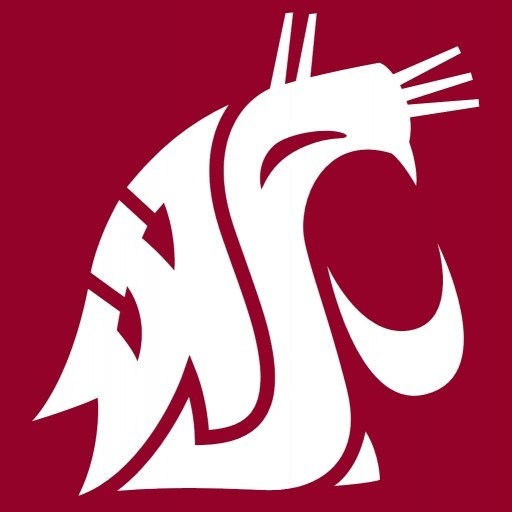This qualification gives an occupational outcome in agriculture, horticulture and conservation land direction and at least one as well as four other related industries. People who have this qualification perform tasks in various contexts, which demand a few conclusion in selecting equipment and solutions. Based upon the components selected individuals are going to have the ability to find employment not only in rural industries but also other industry businesses, such as town, tourism, hospitality, transportand structure and information technology and alloys. No occupational licensing, legislative or certification requirements apply to the qualification during publication.
The Bachelor of Rural Operations at Swinburne University of Technology is a comprehensive program designed to prepare students for dynamic careers in the agricultural and rural industries. This degree combines foundational knowledge in agriculture, resource management, and sustainable practices with practical skills that are essential for success in the rapidly changing rural environment. Throughout the course, students gain insights into modern farming techniques, land and water management, environmental sustainability, and technological innovations that are transforming rural operations today.
The program emphasizes hands-on learning and real-world experiences, integrating industry placements, projects, and collaborations with rural businesses. Students will explore topics such as crop and livestock production, farm business management, innovation in rural settings, and the use of digital technologies to optimize productivity and sustainability. They also develop critical skills in problem-solving, leadership, communication, and decision-making, preparing them to address contemporary challenges faced by rural communities.
Swinburne’s Bachelor of Rural Operations offers a flexible study pathway, allowing students to tailor their education through elective subjects and specializations aligned with their career interests. It prepares graduates for diverse roles including farm manager, agricultural consultant, rural business advisor, or agribusiness entrepreneur. The program also integrates principles of environmental stewardship and sustainable development, encouraging students to develop solutions that balance productivity with ecological responsibility.
The curriculum is regularly updated to reflect advances in technology and industry standards, ensuring graduates are well-equipped to contribute to the growth and sustainability of rural industries. With access to Swinburne’s state-of-the-art facilities, industry partnerships, and dedicated academic support, students in this program gain the knowledge, skills, and confidence to excel in the competitive and evolving landscape of rural operations worldwide.
The Bachelor of Rural Operations at Swinburne University of Technology is designed to equip students with comprehensive knowledge and practical skills essential for a career in rural and agricultural industries. To successfully complete this program, students are required to undertake a combination of core and elective courses that cover key areas such as agricultural management, rural enterprise development, environmental sustainability, and innovative technologies in agriculture. The curriculum emphasizes practical learning through industry placements, projects, and simulations to ensure graduates are well-prepared for real-world challenges. Students must also meet the program's academic progression standards, including maintaining a minimum grade point average and passing all mandatory courses. The program typically requires the completion of a set number of credit points, which are accumulated through successful assessments across various modules. Additionally, students are encouraged to participate in extracurricular activities, industry engagement opportunities, and internships that enhance their practical experience and professional networks. Certain courses may have prerequisites or require students to demonstrate foundational knowledge in areas such as biology, environmental science, or business management. The program also stresses the importance of developing soft skills such as communication, teamwork, and leadership. For international students, visa requirements and English language proficiency tests like IELTS may be necessary to enroll. Recommendations for program completion include timely progression through coursework, active participation in practical components, and adherence to academic integrity policies. Graduates of the program will be equipped to pursue careers in rural operational management, agricultural consultancy, environmental planning, and rural community development, among other roles. Overall, the program aims to produce skilled professionals capable of addressing the complexities of rural industries with innovative solutions and sustainable practices.
Financing for the Rural Operations program at Swinburne University of Technology typically involves a combination of government support, student loans, scholarships, and personal funding. Australian students may access funding through the Australian Government's financial assistance programs, such as the Commonwealth Supported Places (CSP), which subsidize tuition fees for eligible domestic students, making higher education more affordable. Additionally, students can apply for various scholarships offered by Swinburne University, which recognize academic excellence, financial need, or specific demographic backgrounds, reducing overall study costs.
International students may need to arrange full fee payment or secure student visas that require proof of sufficient funds for tuition and living expenses. International students are generally responsible for paying full tuition fees upfront or through payment plans negotiated with the university. Swinburne also participates in external scholarship programs, which can provide partial or full funding for enrolled students, covering tuition, accommodation, or living costs.
Many students finance their studies through part-time employment, often working in related industries or on-campus roles, balancing work and studies to manage expenses effectively. Student Loan programs are available through the Australian government, such as the Higher Education Loan Program (HELP), which allows eligible students to defer tuition fees and repay them through the tax system once employed and earning above a certain threshold.
Furthermore, some students may access private sources of funding, including bank loans or family support, to cover costs not met by government assistance or scholarships. The cost of the program includes tuition fees, which vary based on residency status and specific course requirements, and additional expenses such as textbooks, equipment, and living costs. Swinburne also offers financial planning resources and advice to help students manage their education funding efficiently. Overall, financing options are designed to support a diverse student body and facilitate access to the Rural Operations program, ensuring students can focus on their studies and successful completion of the qualification.
The Bachelor of Rural Operations at Swinburne University of Technology is a comprehensive program designed to equip students with essential skills and knowledge needed to succeed in the dynamic and diverse rural industry. This degree focuses on areas such as agricultural management, rural enterprise development, environmental sustainability, and innovative farming practices. Students enrolled in this program will explore subjects that cover topics like land management, farm business planning, agricultural technology, and rural community development, preparing them for careers that contribute to the sustainable growth of rural regions.
Throughout the program, students benefit from a blend of theoretical instruction and practical experience. Swinburne emphasizes applied learning, often incorporating industry placements, project work, and collaboration with local agricultural businesses and organizations. This approach ensures students gain real-world insights and develop their problem-solving and decision-making capabilities in contexts relevant to contemporary rural operations. The curriculum also integrates emerging technologies such as GIS mapping, precision agriculture, and sustainable resource management, equipping graduates with cutting-edge skills to address current challenges faced by the rural sector.
Graduates of the Bachelor of Rural Operations are well-prepared for a variety of careers including farm management, agribusiness consultancy, rural enterprise development, environmental planning, and sustainable resource use. The program aims to foster entrepreneurial thinking and leadership qualities, empowering students to implement innovative solutions that enhance productivity and sustainability in rural communities. Swinburne’s strong industry connections and emphasis on practical learning provide students with networking opportunities and exposure to potential employers.
Furthermore, the program is designed to be flexible, often allowing students to tailor their electives to specific interests within the rural sector, such as livestock management, horticulture, or renewable energy. Students are also encouraged to develop their entrepreneurial skills, enabling them to initiate and manage new rural enterprises or improve existing ones. Overall, the Bachelor of Rural Operations prepares students to make meaningful contributions to rural development, environmental sustainability, and the broader agricultural economy, supporting the ongoing prosperity and resilience of rural communities.
(Exactly 1884 characters)









